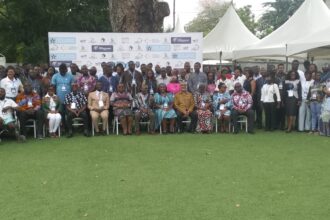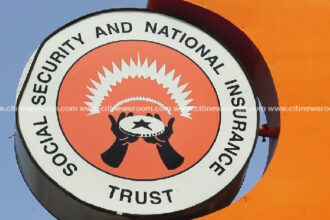The Resource Justice Network-Ghana (formerly Publish What You Pay) has continued its advocacy for transparent and inclusive governance in the extractive sector, ensuring that local communities benefit from the natural wealth of their lands.
At a recent engagement with communities within the Mfantseman Municipal Assembly in the Central Region, the Coordinator of Resource Justice Network- Ghana, Mr. Bernard Anaba, stressed the need for local communities to be actively involved in the decision-making processes that shape their futures.
Mr Anaba indicated that civil society has as part of its role to empower local populations, particularly those in resource-rich communities, to amplify their voices and ensure their concerns are included in development planning.
“We are engaging and empowering communities to be part of the decision-making process. we want to strengthen community voices so that their concerns are not only heard but factored into key decisions, particularly the Municipal Assembly’s Medium Term Development Plan.” Mr Anaba noted.
He added that the event was also meant to provide a platform for community members to interact directly with their Municipal Assembly.
The dialogues, held separately at the Saltpond and Mankessim Zonal Councils, were organized by the Integrated Social Development Centre (ISODEC) in partnership with Friends of the Nation (FoN) and the Mfantseman Municipal Assembly, with support from the Resource Justice Network.
Aimed to incorporate the voices and needs of communities into Assembly’s Medium Term Development Plan (MTDP), the meetings brought together traditional leaders, Assembly members, Municipal Planning Unit, women, and youth groups from several communities including Ewoyaa, Abonko, Ansaadze, Krofu, Krampakrom among others.
The meeting also took into consideration the potential impact of Lithium mining in the communities.
Participants were taken through comprehensive briefings on roles and responsibilities of the District Assembly, the benefits and challenges of mining activities and encouraged to assess their communities’ vulnerabilities and opportunities.
During group discussions, the Municipal Planning Officer, Mary Nana Adjoa Mensah, urged participants to take the event seriously, emphasizing that it has the potential to shape their future and that of their children.
Nana Adjoa Mensah specifically encouraged the women to voice their pressing concerns to ensure they are accurately captured and incorporated into the Medium-Term Development Plan (MTDP).
The Communications Officer of FoN, Mr Obrengpong Yaw Ampofo, noted that many Metropolitan, Municipal and District Assemblies lack the resources to independently carry out extensive community engagements. Therefore, collaboration is essential to effectively assess the needs of these communities.
Mr. Ampofo noted that, “mining comes with issues, positives and negatives. And so, as the Assembly is in the process of obtaining the needs of the communities, we sought to partner with them to have specialized dialogues or conversations with communities so that the issues that come to communities as a result of the mines, based on our experiences in other areas, will be factored in the plan. And once factored, appropriate measures will now be designed to address them in the next four years.”
On his part Mr James Kwadwo Yampah, a participant from Krofu stated that the event has been timely and valuable, “as it helped us understand that the assembly does not operate in isolation or make decisions independently. With the community’s involvement in expressing our needs, the assembly can better represent us and advocate on our behalf.”
.














